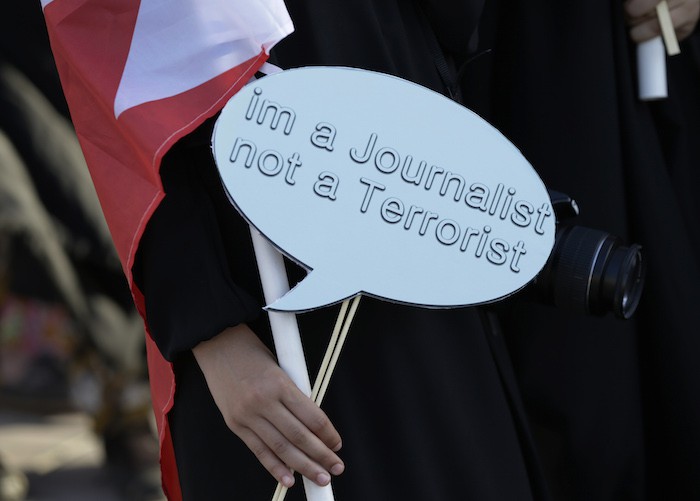
Over the past 22 years, 1,059 journalists have been killed. Worldwide, some 430 journalists are in exile from their home countries. Hundreds more are injured, persecuted, muzzled, and threatened, mostly by governments and sometimes by influential non-governmental forces, all interested in stifling a free, fearless press. Much of this happens in countries where autocratic regimes are the norm and press freedom is ignored.
Meanwhile, there’s a lot of lip service paid, often after the fact, to such threats. In December, for instance, the U.N. held one of its usual summits to talk about this problem, and all that it resulted in was a so-called communiqué. The Committee to Protect Journalists (CPJ), a very worthy nonprofit group, does offer emergency assistance through its Gene Roberts Fund for Emergency Assistance, which has helped dozens of journalists in distress. But CPJ does this in the larger context of needing its donor-raised resources for its broader mission of protecting and promoting press freedoms worldwide.So my idea is simple: Create a Journalist Rescue Fund.
It will be a global effort that will offer journalists under threat an avenue to be temporarily placed in journalism schools at universities around the world, and in media organizations willing to provide a short-term professional home. Such placement will allow them to continue to practice journalism without fearing for their lives, or even to acquire new skills in a safe environment until a more permanent home is found back in their country or elsewhere. The host partners for this program will be universities and news organizations around the world.
The idea isn’t as far-fetched as it might seem at first blush. It is based on my personal exposure to the very successful Scholar Rescue Fund, which is managed by the New York-based International Institute of Education — a 93-year-old organization that also administers the Fulbright Fellowships, among other things, and focuses on opening access to U.S. education to young people from around the world.
For the past 10 years, the Scholar Rescue Fund has placed nearly 500 scholars, mostly professors from 48 countries, in universities in other nations so they could fearlessly continue their work. These professors were all considered threats in their home countries, including most recently Iran, Iraq, Syria, and Libya, and often targeted by those regimes. The Scholar Rescue Fund is entirely funded by donations and managed by IIE; it began with a small number of major visionary philanthropists drawing from their personal family experiences of being persecuted.
The Scholar Rescue Fund has done tremendously impactful work in a very non-controversial way, working with many of the countries where such scholars are at risk. The Fund has lined up universities in 40 countries, including dozens in the U.S., and scores of partners to help make Scholar Rescue a reality. There’s a lot of documented research on its success with some highlights here.
A Journalist Rescue Fund, modeled on the Scholar Rescue Fund, would be at the heart of deeply held beliefs about free markets and free societies, the value of a free press, and the growing role of technology in furthering journalism communities and conversations around the world — all of which ought to stand for free expression.
A well endowed Journalist Rescue Fund, perhaps jointly administered by two globally reputable nonprofits — the Institute of International Education and the International Center for Journalists — and working in coordination with CPJ would have a profound, practical, and immediate impact on preserving hard-won freedoms in many countries, and in ensuring a legacy that goes well beyond individual institutions.
I believe a significant initial commitment of around $5 million could provide for a decade-long initial funding, with the goal to then become self-sufficient through other fundraising efforts.
Any philanthropists out there willing to help jumpstart what will be a enduring, global legacy of protecting journalists?
Raju Narisetti is senior vice president for strategy at News Corp. He serves as a trustee of the Institute of International Education and as a board member of International Center for Journalists.